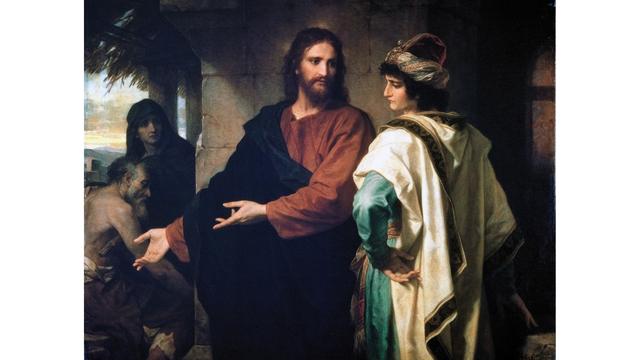The new law, by prohibiting donations based on “fear” of misfortunes in this or in the next life and on trust in “inspired” teachers, in fact looks with suspicion at all religions.
by Massimo Introvigne
Article 2 of 4. Read article 1.


Article 4.6 of the so-called Religious Donations Law passed by the Japanese Parliament on December 10, 2022, forbids donation solicited by claiming a “knowledge based on inspiration or other special abilities that are difficult to demonstrate reasonably,” and persuading the donors that “it is indispensable to donate the life, body, property, or other important matters of the individual or his/her relatives to avoid a serious disadvantage.”
Article 4.6 is the center of the law, and it is what makes it specially applicable to religions, although its scope is not restricted to religious donations only. In fact, religious knowledge is typically “based on inspiration or other special abilities that are difficult to demonstrate reasonably.”
The provision addresses a problem as old as law, i.e., whether there can be fraud in religion. First, we should understand what fraud is. “Fraud” comes from a Greek verb meaning “to break, to offend, to damage,” and in the West the law on fraud, like many other laws, was created by the Romans. Our “fraud” comes from the Latin “fraus.” Fraud was not unimportant for the Romans. In fact, there was a goddess Fraus, who was one of the helpers of the god Mercury, the Roman equivalent of the Greek Hermes, who was the god of commerce and communication but was also depicted as a trickster.
Fraud was ambiguously evaluated and permissible if practiced for the right motivations in Greek culture. The mythological hero Ulysses was highly praised for having deceived the Trojans with his famous Trojan Horse. The Romans, who were somewhat more moralistic, had a less lenient view of fraud. Cicero noted that to compel good citizens to do something they do not want to do, two strategies can be used: the way of the lion, violence, and the way of the fox, fraud. The latter is deprived of the lion’s nobility and should be regarded as more despicable.
It is precisely in dealing with fraud that Roman legal experts made their famous remark “omnis definitio periculosa,” meaning that in law “all definitions are dangerous.” Many centuries later, an American Supreme Court Justice would say the same of pornography, “I know it when I see it.” However, in practice, even the Romans did discuss what fraud was.
While less interested in the subjective motivations of the wrongdoers than their Christian successors in the Middle Ages, the Romans considered that we commit fraud when we persuade somebody to give us money or other properties based on false promises or claims. The great Roman jurist Ulpian gave examples that are still valid today: I sell a home that is not mine; I promise that by giving me money today somebody will receive in due time a magnificent jewel I am in the process of purchasing—after which I disappear, and the victim is left with no money and no jewel.


Note that in these cases we are dealing with material properties. The specific house or jewel may not exist, but houses and jewels do exist in the material, physical world. If I promised to supply a house or a jewel, and pocketed the corresponding money with no intention of delivering them, it is easy to prove the fraud.
But the Romans already knew that much more problematic is the promise of an immaterial benefit. One thing is to promise to sell a home which is later discovered I did not own, or a jewel that never materializes. But what if I promise religious enlightenment or rewards in the afterlife? Obviously, unlike in the cases of the house or the jewel, “enlightenment” is not a material object, and what happens in the afterlife by definition cannot be proved.
The Romans struggled with the question, but largely understood that promises made by a religion are different from promises made by a building contractor or a jeweler, and let religion alone.
In subsequent contexts where there was a state religion and no religious liberty, the dominant religion was not disturbed if it solicited donations promising to grant to the donors a better afterlife, and the competing religions were prohibited or barely tolerated anyway. One famous example is the controversy on the indulgences.
The Catholic Church teaches that most deceased human beings are not good enough to go straight to heaven, nor bad enough to go to hell. They should spend time in a place called purgatory, where they atone for their sins. It is not a pleasant place but, while they cannot do anything to shorter their time there, their relatives and friend on earth can, through appropriate ritual actions, including by offering Masses for the soul of the deceased.
By the 16th century, this doctrine had been somewhat banalized by preachers who claimed that offers of money on behalf of the deceased would automatically move them from purgatory to heaven. This was the casus belli for Martin Luther’s revolt against the Church of Rome. He attributed to his arch-enemy, a Dominican preacher called Johann Tetzel, the slogan “As soon as the money clinks into the money chest, the soul flies out of Purgatory.” Modern historians believe Tetzel never used the slogan, but that monetary offers may ease a soul’s condition in purgatory was commonly taught at that time by the Catholic Church.


Countless other religions teach that offers are virtuous deeds through which the living may prepare for themselves a better afterlife, or a better reincarnation, and the dead may get a better deal in the spiritual world if their relatives or friend on earth make donations on their behalf.
Why do many believe this? Because they are told so by priests, pastors, rabbis, spiritual masters who claim they know things most of us do not know about the afterlife. This is precisely the “knowledge based on inspiration or other special abilities that are difficult to demonstrate reasonably.” Spiritual leaders or masters cannot “demonstrate reasonably” that their teachings on the afterlife are true. And many religionists donate to them to avoid for themselves and for their deceased relatives, such “serious misfortunes” as having to spend centuries in the Catholic purgatory or a in Buddhist cold hell, or perhaps reincarnate as a frog.
In the Gospel of Mark 10:17–22, a rich young man comes to Jesus and asks him how he can be sure to “inherit eternal life.” Jesus tells him that living honestly as the young man does is a good start, but does not guarantee heaven. If he wants to be sure of his “treasure in heaven,” the young man is told to “sell everything you have and give to the poor.”
Interestingly, some modern Biblical scholars have seen here a criticism by Jesus of Roman laws who limited religious donations by the Jews—they should keep their money to pay taxes to the Romans—, but the point here is that Jesus speaks with authority, and his knowledge is indeed “based on inspiration and other special abilities.”
Parting company from all his money for the rich young man was a tangible, and painful, event in the physical world. That he will be rewarded with “eternal life,” “a treasure in heaven,” is something that, as the Japanese law would say, “was difficult to demonstrate reasonably.” If the young man would donate, he would do so trusting Jesus as an “inspired” master with “special abilities,” and also out of “fear” of missing the ship leading to eternal life.


This is not the structure of donations in a particular religion. It is the structure of donations in all religions. If soliciting donations, or asking that devotees become more active in the religion, by promising enlightenment in this life and rewards in the next is a fraud, then all religions are frauds. Indeed, this was the conclusion of the Enlightenment enemies of religions and of Marxists. But it is a conclusion that democratic governments have resisted.
It is not at all clear how Japan can respect religious liberty, as Article 12 of the new law mandates, by proscribing donations made out of “fear” that one may miss salvation or enlightenment, or based on the persuasion that a religious teacher or a church is the custodian of a higher knowledge based on inspiration.








